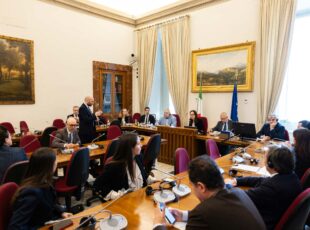MEP Attacks ‘Selective Justice’ Of Khodorkovsky Case As Russian Diplomat Gives Astonishing Justification of Magnitsky Prosecution
Member of the European Parliament for London, Dr Charles Tannock, raised the Khodorkovsky case as an example of “selective justice” during a hearing on human rights in Russia organised by the European Parliament’s subcommittee on human rights.
After hearing from panellists including the renowned Russian human rights activist Lev Ponomarev and Igor Kalyapin, Head of the Committee Against Torture in Moscow, MEPs commented on the lamentable situation of human rights in Russia and highlighted the alarming rise in impunity for human rights abusers.
In his remarks, and in addition to expressing his concern about Mikhail Khodorkovsky’s prosecution and imprisonment, Dr Tannock reflected widespread dismay about the decision in Russia to prosecute posthumously lawyer Sergei Magnitsky, who was detained, tortured and died in prison after exposing a massive tax fraud.
Pointing out that Magnitsky had died “in a horrendous situation in a Russian jail”, Tannock asked the Russian representative at the hearing, Konstantin Dolgov – the Russian foreign ministry’s special representative for human rights, democracy and the rule of law – to justify the decision to prosecute Magnitsky posthumously, which most experts agree defies all accepted international legal norms. Dr Tannock asked Mr Dolgov the direct question: “Where is the justice there?”
In his response, Mr Dolgov blamed Magnitsky’s family for the prolongation of the case, saying that the family members had refused to abandon it because they were still hoping for an acquittal, but were refusing to cooperate with investigators.
Mr Dolgov added that posthumous prosecution was “prevailing international practice”, and said that if Magnitsky’s “good name is to be restored”, it was necessary for his family to fight for it.
Despite Magnitsky’s work to uncover a US$230m fraud linked to key government officials and organised crime figures, and the work of his former boss Bill Browder to bring those responsible for Magnitsky’s death to justice, Mr Dolgov told the committee of MEPs that both Magnitsky and Browder were accused of very serious offences that justified the legal proceedings against them.
Many commentators have stated in the international press recently that the determined effort to prosecute Magnitsky is a politically-motivated decision prompted by a US law imposing sanctions on those who played a part in Magnitsky’s death.
MEPs voted in favour of a recommendation to European Union member states in late 2012 calling for similar legislation across the EU.
More information about the case of Sergei Magnitsky can be found at www.justiceforsergei.com
A video of the hearing can be viewed online: EP Hearing on Human Rights in Russia
Mr Dolgov’s first comments are between 17.34 and 17.48. Dr Tannock’s comments begin at 17.55 and Mr Dolgov’s subsequent comments are at 18.05



